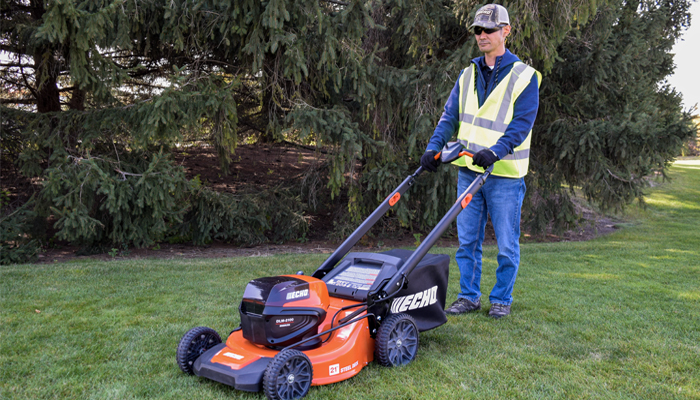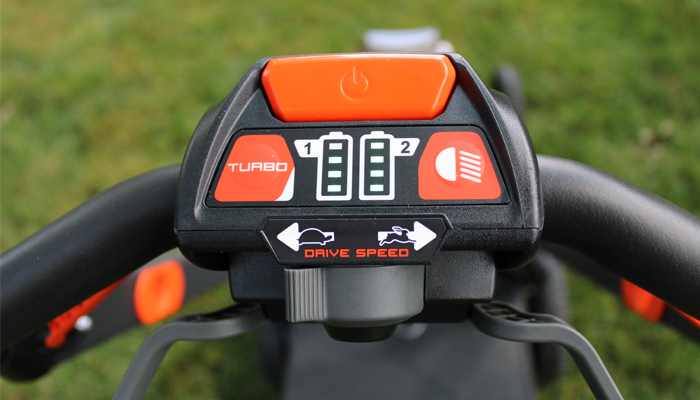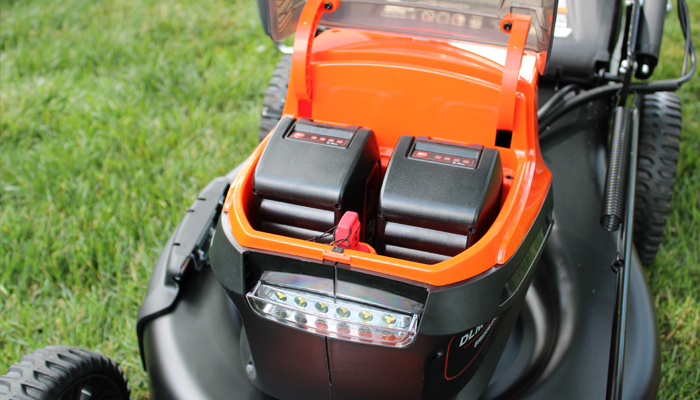Gas vs. Electric Lawn Mowers: Making The Right Choice For Your Lawn
Keeping your lawn healthy and beautiful means having the right tools for the job. But while having a mower is a given, choosing the right lawn mower is largely up to personal preference. Choosing between a gas or a battery-powered lawn mower will impact several aspects of your lawn care routine. Understanding the differences is essential to making an informed choice when it comes to gas vs battery-powered lawn mowers.

Understanding the Differences
As you try to choose between a battery-powered lawn mower and its gas-powered alternative, a few key differences can affect both performance and convenience. And, for some buyers, there’s the environmental footprint to keep in mind, too.
Here are some important factors to think about before you purchase your next mower:
- Power Source
- Operation
- Maintenance Requirements
- Environmental Impact
Power Source
Gas lawn mowers: Lawn mowers that run on gasoline have robust power, which means they can be a good option for larger lawns or when extended runtime is necessary.
Battery-powered lawn mowers: Battery-powered mowers have rechargeable batteries that offer lightweight mobility and are a good option for homeowners with small to medium-sized lawns.
Operation
Gas lawn mowers: While gas mowers are known for power and capability in handling tough mowing tasks, some models may be louder and heavier than battery-powered versions.
Battery-powered lawn mowers: Battery-powered mowers are generally quieter and lighter than gas alternatives, making them easier to handle and an excellent option for residential areas. These mowers offer the convenience of easy start-up with just the push of a button, making them more user-friendly than the traditional pull-start mechanism of many gas mowers.
Maintenance
Gas lawn mowers: Gas requires a bit more maintenance than battery-powered mowers do, but it’s simple to perform. Gas-powered mower maintenance requires things like:
- Regular oil changes
- Spark plug replacements
- Air filter cleaning and replacement
Battery-powered lawn mowers: Battery-powered mowers require minimal maintenance, with no need for oil changes or engine tune-ups. Maintenance on a battery mower involves keeping the blades sharp and making sure the battery is charged, in good condition, and ready to mow when you are.
Environmental Impact
Battery-powered lawn mowers: Battery mowers have zero emissions, making them a more environmentally friendly choice.
Benefits of Battery vs. Gas Lawn Mowers
If you’re trying to compare battery vs. gas mowers, several benefits stand out that make the battery option a popular choice for many homeowners. Here are some key advantages of going the battery-operated route:
- Quieter operation: Produce significantly less noise, making them ideal for residential areas or anywhere that noise levels are a concern.
- Zero emissions: Do not emit exhaust fumes, meaning they can promote a cleaner and healthier environment.
- Lower maintenance requirements: Have fewer moving parts and require less maintenance.
- Cost-effective: Can be more cost-effective in the long run due to lower fuel and maintenance costs.
- Lightweight and easy to maneuver: Generally lighter in weight, making them easier to handle for users of all ages and physical capabilities.
- Instant start: Immediate start with a simple push of a button.

Ease of use and Hassle-Free Operation
Battery-powered mowers also offer the benefit of ease of use. For those seeking convenience and simplicity in their lawn care routine, features like the instant start mean you can begin mowing immediately.
No gas or oil means you don’t have to worry about refueling, running out of gas mid-job, storing fuel, or dealing with oil spills. The hassle-free operation of battery-powered mowers can be a great option if you’re looking to simplify lawn maintenance tasks.
Lawn Mower Maintenance Made Easy
If there’s one thing a battery-powered mower offers, it’s easy maintenance. Upkeep on battery-powered mowers is straightforward and convenient. For this reason alone, battery mowers can be an attractive option for homeowners who want to ensure their equipment stays in top condition but don’t want the hassle of extensive – or expensive – maintenance jobs.
Practical tips and advice for maintaining your battery-powered lawn mower:
Blade Sharpening
- Inspect regularly: Checking mower blades for nicks and dullness will ensure you have sharp blades that offer clean cuts to promote healthy grass.
- Sharpening: Mower blades should be sharpened at least once a season – more frequently if you mow often or over debris. You can use a sharpening stone or take the blades to a professional. Occasionally, you may need to replace mower blades.
- Balancing: After sharpening, it’s important to balance the blades to prevent uneven wear and tear on the mower.
Battery Care
- Proper charging: Always use the ECHO 56V Charger and follow the charging instructions when you recharge your ECHO battery. Avoid overcharging to extend the battery’s lifespan.
- Storage: Batteries should be stored in a cool, dry place. During the off-season, keeping the battery partially charged will improve longevity.

Cleaning
- After each use: To keep your battery-powered mower working as well as it did the first time you used it, be sure to clean the mower deck to remove grass clippings and debris. Making this a habit after each use will prevent buildup that can begin to affect performance and cause rust.
- Exterior cleaning: Wipe down the exterior of your mower with a damp cloth to keep it looking new and prevent dirt from entering the motor.
- Air vents: Ensure the air vents are clear of obstructions, dirt, and debris to prevent overheating and ensure efficient operation.
Simplicity and Convenience
Battery-operated lawn mowers are simple and convenient in their own way. The ease of maintaining a battery-powered mower means you’ll spend less time on upkeep, so you’ll have more time to enjoy your well-manicured lawn.
Other Considerations for Lawn Mower Buyers
When deciding between gas vs. battery lawn mowers, several factors can influence which style you ultimately go with, for example:
Lawn size:
- Battery-operated mowers are ideal for small- to medium-sized yards.
- Gas mowers might be better for larger lawns that require extended runtime or more power.
Terrain:
- Since they’re lighter and easy to maneuver, battery-powered mowers can be good for mostly flat or gently sloped lawns.
- Gas mowers offer power and can be more effective in navigating uneven or rough terrain.
Budget:
- While battery-operated mowers might have a higher initial cost, they can save you money in the long run since you’ll have no fuel expenses and lower maintenance costs.
- Gas mowers might have a lower upfront cost, but keep in mind you'll have ongoing expenses for fuel, oil, and filters.
Preferences:
Noise levels: Battery-powered mowers are quieter, so if you live in a noise-sensitive area, they might be a better option.
Simple to use: Battery-powered mowers are extremely easy to start and use, requiring less time, money, and energy to maintain.
Physical ability: A battery-operated mower’s light weight can be a significant plus for anyone with limited mobility.
Which Lawnmower is Right For You?
Deciding on a new mower means determining whether a battery-powered vs. gas mower will better suit your preferences and specific lawn care requirements.
Both types of mowers have unique advantages as well as things to consider. Knowing about each can help you be confident in your decision. Considering what kind of power source you want, what your maintenance needs and costs will be, what your budget is, and whether you want a more environmentally friendly option will help you find the perfect mower.
Remember, there’s no “best” or “right” choice – it simply comes down to what you need and want. And now, you know precisely what to look for. Check out ECHO’s full line of mowers today.